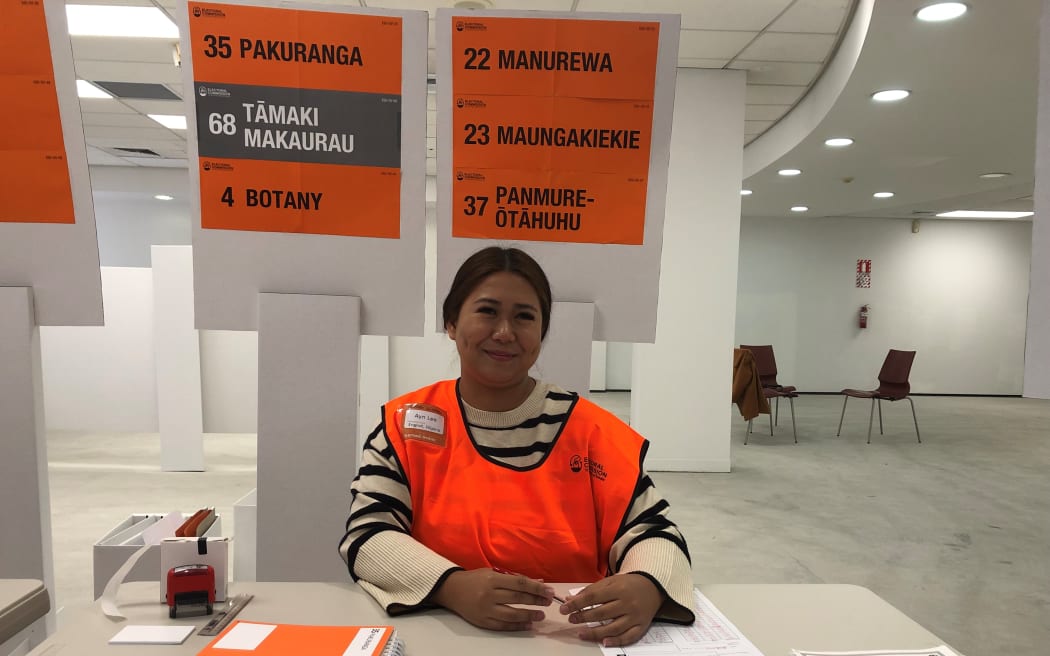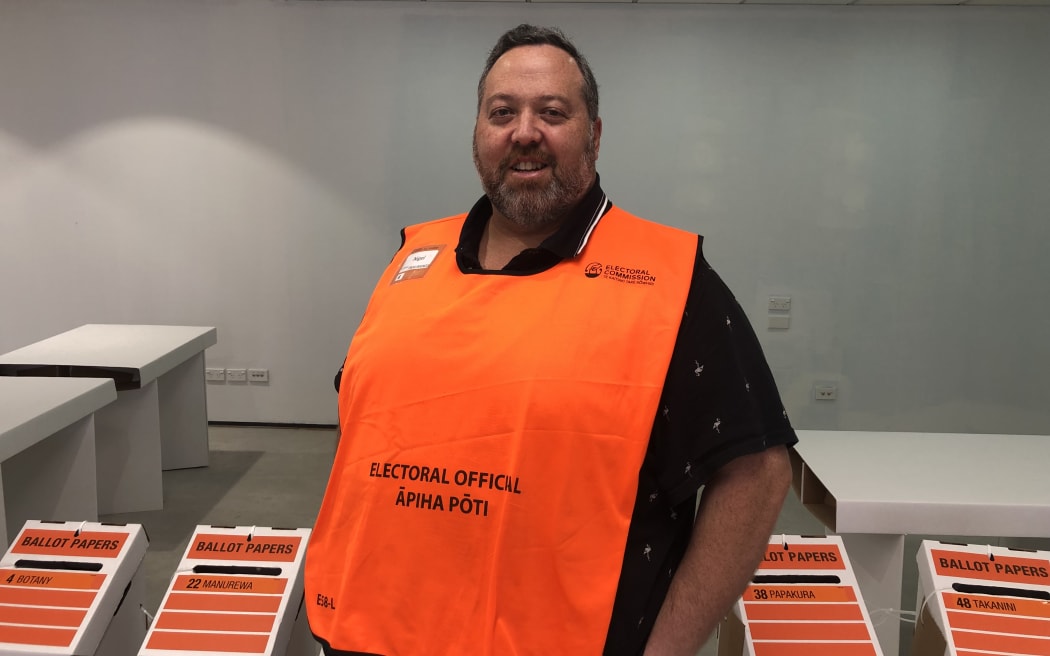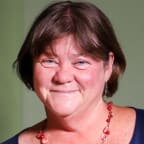The Detail goes behind the scenes to talk to the people involved in recording your vote - and some of them have particular reasons for being involved in a smoothly-run democratic process.

Ayn Lee Perez is an issuing officer at the voting booth at the Pakuranga Plaza. Photo: Sharon Brettkelly
All we have to do is wander down to a polling booth, make a couple of ticks on a ballot paper and drop it in a box.
But clearly there's a lot more to running an election than our small part in it.
Planning starts two years out, means employing 25,000 people, and finding venues for 2,300 election day polling booths.
This election has a budget of $144 million – so you wouldn't want to repeat it in a hurry.
The Detail today goes out to a polling booth in the Auckland suburb of Pakuranga and talks to the workers there about what they do, and their reasons for taking the job.
Issuing officer Farrukh Mirza came from India 30 years ago, and the chaotic system there, with huge numbers of voters involved, was motivation to help out in New Zealand's elections.
"Voting there was about two or three days – crowds of hundreds of thousands non-stop, so you've got to stand in the queue for an hour, an hour and a half, before you get a chance to vote.
"I remember it was my first time voting and I was quite excited.
"And when I turned up at the booth after waiting for two hours I was told someone else had already voted for me. They don't check so much and someone just went ahead in the morning ... and that's the thing about democracies like that, there's a lot of rigging and there's a lot of other things going on.
"So my first experience of voting was in New Zealand, and I think New Zealand has one of the cleanest democracies in that sense of voting and how many checks and balances we have to do.
"Everything is manual, and a lot of people say 'why is it not electronic?' and 'why do I have to fill this form and that form?' but all the checks and balances are there so we don't make mistakes, and the vote counts."
Farrukh Mirza says a lot of people come from countries where they don't have a clear voting structure, or they're not really exposed to voting.
"They ask a lot of questions."
For Nigel Tainui, mobile support for the Pakuranga electorate, it's always been a family affair.

Nigel Tainui is mobile support for the Pakuranga electorate. Photo: Sharon Brettkelly
"My dad has done it; his dad has done it; two of my sisters have done it. I grew up on the West Coast, in Hokitika, and our family have pretty much operated a small voting place there for a long time. Me and my two sisters, we had to serve an apprenticeship under Dad as issuing officers first, and then as our careers have taken us around the country we've just stayed involved."
This is his ninth election working for the Electoral Commission.
"I actually get quite excited about the elections. Every three years when they come around, as soon as the date is announced, I'm putting in annual leave at my normal day job. It's a great thing to be part of."
Listen to the full podcast for Nigel's story about working in a tiny polling booth with his sister, when a van load of out-of-area voters rolled in at the last minute – and they only had one official ballot paper for their electorate, and no photocopier.
The Detail also talks to Anusha Guler, the deputy chief executive (operations) of the Electoral Commission, who will be at the organisation's command centre in Wellington on the night.
She talks about the huge logistics involved in running an election, the reasons this election has been a lot more expensive than 2020's Covid-era exercise – and why there are no "I voted" stickers.
Guler also has a special reason to be involved in this work.
"I was born in South Africa during the apartheid era and I didn't have the right to vote – neither did my parents. So when I saw this role, I knew it was for me."
Check out how to listen to and follow The Detail here.
You can also stay up-to-date by liking us on Facebook or following us on Twitter.

Photo:



